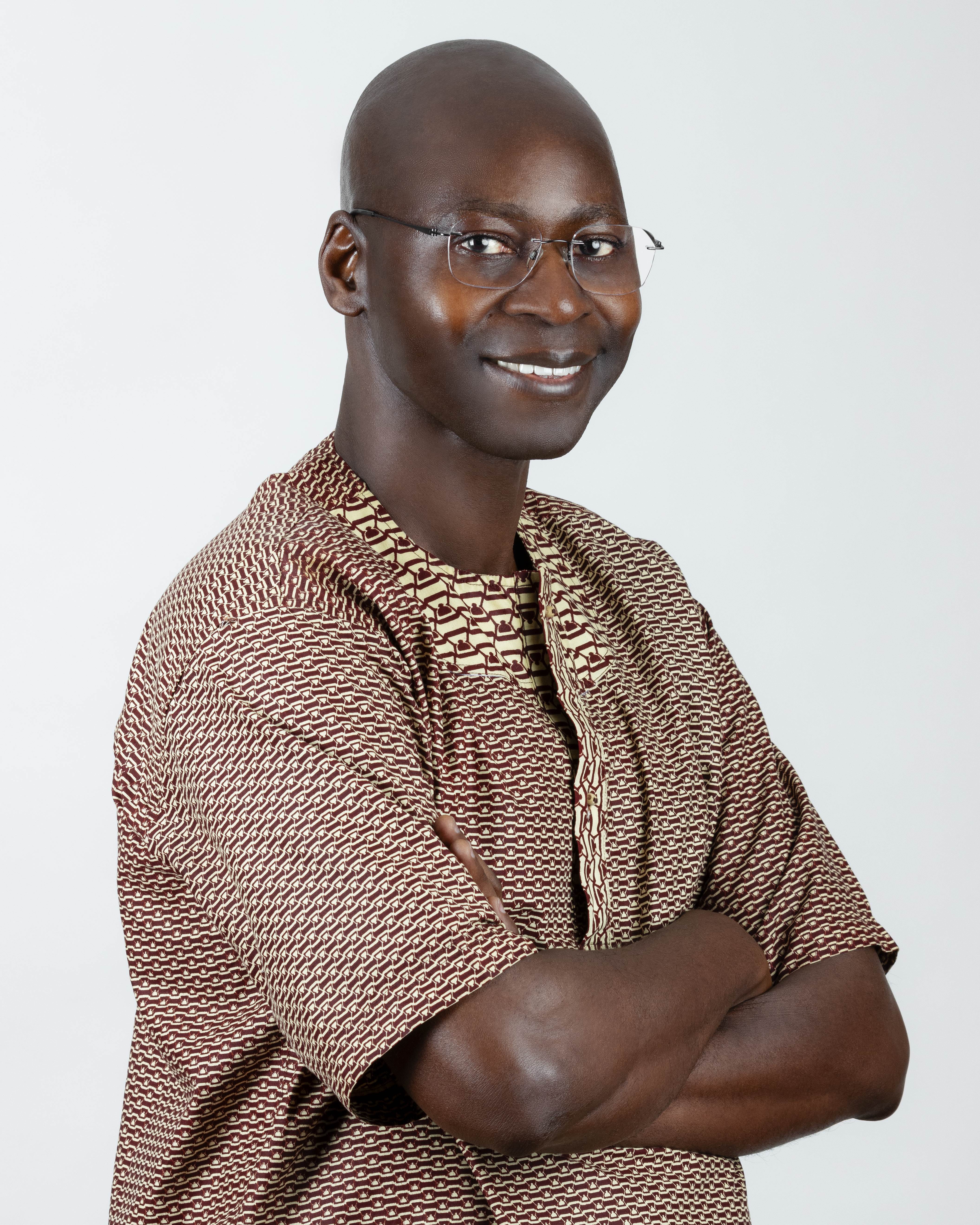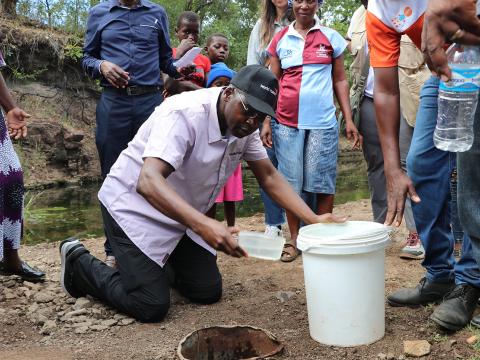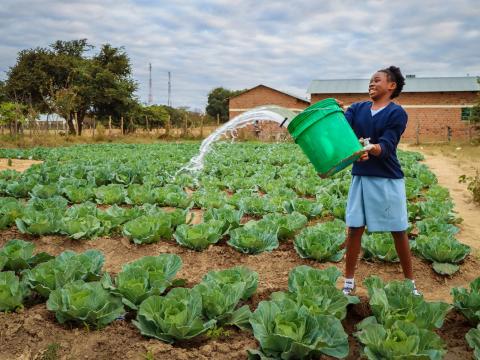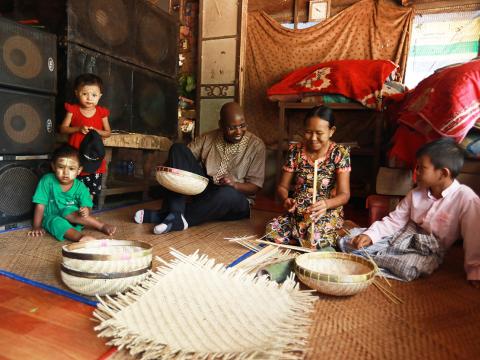
Amidst budget cuts and rising debt, focus on children
Dr Jean Baptiste Kamate (JBK) writes to remind the World Bank and governments that only courage and ambition at this year’s Annual Meetings can save children
I have just returned from Myanmar—where half of the country’s 55 million people are at risk of falling into poverty, including 16 million children—to discover the World Bank has just published its new study about how global aid to 26 low-income economies has fallen to a 21-year low. At the same time, the government debt of those countries, home to over 40% of all people who live on less than $2.15 a day, stands at 72% of GDP, an 18-year high. Moreover, these countries now spend more on debt interest payments than on education or health.
We live in a time when children’s needs—shelter and security, nutrition and food, proper education and healthcare—are threatened by major cuts in aid budgets, and rising debt. The number of children dying from hunger, which has declined every decade since the 1980s, is now rising again due to increasing conflict, natural disasters and spiraling food costs.
In 2022, almost half of the 345 million people facing acute hunger were estimated to be children. Furthermore, nearly half of all deaths in children under-5 are a result of undernutrition, with children in conflict zones being more than twice as likely to suffer from malnutrition than those who are not. The number of children missing out on schooling has increased by six million since 2021, bringing the total to 250 million. And more than 1 billion children continue to experience violence, further harming their health and education.
Seeing the problem first-hand
My work at World Vision means I witness the effects of such multi-dimensional poverty on children all over the world. When I was in Myanmar, I saw some of the reasons why the country has the highest under-5 child mortality rate in Southeast Asia. Children in Myanmar are missing routine immunisations, lack access to safe water at home, and are facing malnutrition, with 29% of under-5 children being stunted. Additionally, due to conflict and insecurity, children are also deprived of access to education.
One of the things I hold steadfast to is that “hope springs eternal.” At World Vision, we are in the business of hope. I visited with a family in Myanmar, Aung Aung Oo and his wife, whose children are now thriving thanks to the partnership of our staff, those who provide our funding, and the community members. Our economic support enabled parents to diversify their income by expanding several entrepreneurial ventures, such as livestock and a tricycle rental. This allowed them to upgrade their home and water pump, support their children in school, and even afford private tutoring.
As I attend the World Bank Annual Meetings next week, this family and so many others that I have met in my 30 years with World Vision will be on my mind. Decisions made at the highest levels significantly impact the ability of people living in deep poverty to begin to see a way out, to a brighter, more self-sufficient future. The agenda of the World Bank Annual Meetings will provide significant opportunities to elevate children in the Bank’s agenda, bring attention to their plight and promote their rights.
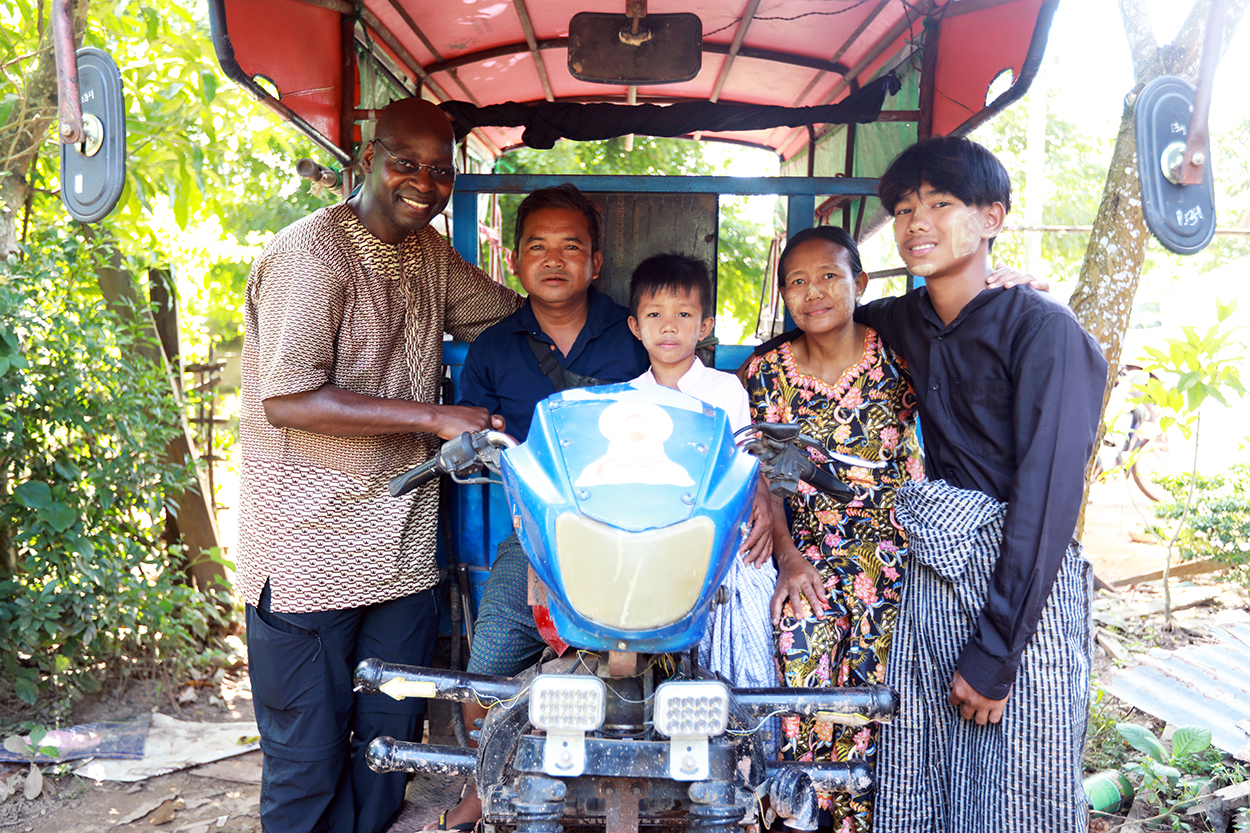
Decisions that make the difference
For example, through strong commitments to the 21st replenishment of the International Development Association (IDA), countries can step up financing and policy commitments for children. IDA21 should be strategically directed at the most vulnerable populations, with a particular emphasis on children in fragile contexts and places of extreme poverty, ensuring they have access to essential health, nutrition, education and protection services.
The Bank should consider a specific IDA lens on children and ensure its investments and commitments are child-sensitive by considering their potential impact on children and the value that such investments bring. Our evidence shows that the return of every ODA dollar invested in children is tenfold.
The World Bank plays a critical role in financing nutrition interventions, having increased its investments over the past decade. The World Bank's new Nutrition Investment Framework emphasises the urgent need for increased investments in undernutrition, projecting a remarkable return of $23 for every $1 spent—totalling an estimated $2.4 trillion in economic benefits. More importantly, the cost of inaction could reach $41 trillion in losses over the next decade – something debt-ridden economies can hardly afford.
At the Annual Meetings, the IDA21 discussion and Bank’s new commitment to Universal Health Coverage for 1.5 billion people by 2030 will be an important platform to focus on child hunger and malnutrition. World Vision is calling for the Universal Health Coverage to focus on delivering essential nutrition actions and services through strong health systems and community health workforce.
As the lead of the World Vision delegation to the World Bank Annual Meetings, I look forward to these vital discussions to drive meaningful change for the world’s children. It requires boldness and ambition from the World Bank and other stakeholders and all-hands-on-deck commitments. Only by doing this can we secure the future for the next generations.
Dr Jean Baptiste Kamate will be attending World Bank Annual Meetings Tuesday 22nd October and Wednesday 23rd October. On Tuesday, he will be co-moderating the World Bank Executive Directors’ Roundtable with Civil Society Organisations, together with the Dean of the World Bank Executive Directors, Matteo Bugamelli.
On Wednesday, he will be moderating a Civil Society Policy Forum Event “Prioritizing Children for Sustainable Development: The Impact of Investing in Essential and Accelerator Public Services.” This event is organised by World Vision and Save the Children and it will bring together a diverse panel of speakers to discuss the significant need to prioritise investing in services for children. Watch the livestreamed event here: Civil Society Policy Forum: Annual Meetings 2024 (worldbank.org)
JBK is World Vision's Chief Field Operations Officer, who oversees 83 field programmes. He has always been a champion for poverty reduction, clean water and all children everywhere. Follow him on X at @jb_kamate and LinkedIn.
